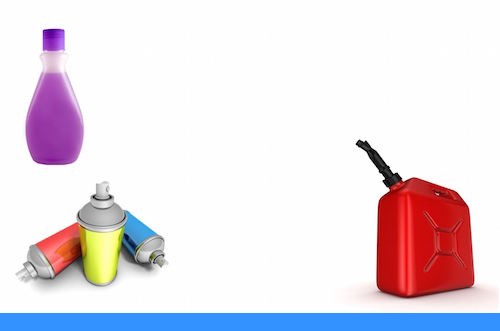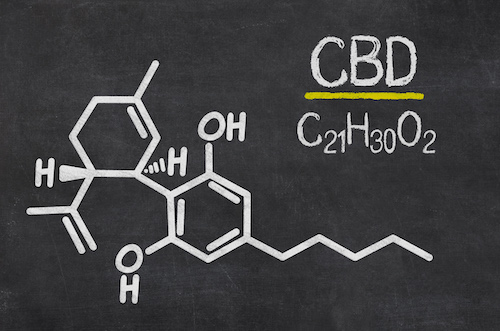
In this module, your students will learn about anger.

In this module, students will begin to learn about boundaries.

In this module, students will learn about bullying and cyberbullying

This module will help you to understand bullying and will help you to stay strong, safe and healthy.

In this module, your students will learn about coping strategies or skills.

In this module, students will learn about digital safety

This module will teach you how to be safe and kind online.

In this module, students will begin to learn about diversity.

In this module, students will begin to learn about emotions.

In this module your students will learn about empathy.

In this module students will learn about equity.

In this module, students will begin to learn about families and about how families can look different from their own.

In this module, students will begin to learn about gratitude

In this module, students will begin to learn about growth mindsets.

In this module your students will begin to learn about healthy communication.

In this module your students will learn about healthy relationships.

This module will help students to recognize their feelings, develop coping strategies, and ultimately aid in controlling emotions.

Mindfulness will help students understand that mindfulness is a practice that can help them learn to be present in the moment. Students will learn how mindfulness impacts their emotions and perspective, as well as gain tools to stay calm and focused.

In this module, students will begin to learn about peer pressure.

In this module, students will begin to learn about resilience.

In this module, your students will begin to understand the different ways people show respect and to think about the ways they may show respect.

In this module, students will begin to learn about responsibility.

Defines self-esteem, outlines types, discusses how to develop a stronger sense of self-esteem.

In this module, your students will learn about self-regulation.

In this module, students will begin to learn about setting goals.

In this module, students will begin to learn about teasing.

In this module, your students will learn more about who they are.

In this module, students will provide information to school staff that allows them to develop rapport, gather classroom dynamics, and understand student self-perceptions.

In this module, students will begin to learn about worries.

Everyone was impacted by the events of last year and all students continue to feel the impact in various ways.

Defines adrenaline, distinguishes between fight or flight, discusses teenage thrill-seeking, highlights the impact adrenaline has on the body, defines alternatives, explores barriers to success, and provides tools to overcome challenges.

Defines extreme thinking patterns, discusses the drawbacks and tendencies of such patterns, describes healthy alternatives to dysfunctional habits, highlights the impact of limited thinking, and explores barriers to success.

Defines anger management, discusses the importance of controlling anger, teaches the different types of anger such as passive, passive aggressive, assertive, and aggressive.

This module will help you to understand anxiety, recognize the signs, and develop coping strategies as well as help-seeking behaviors.

Defines exploitation, outlines safety, and highlights pitfalls for potentially dangerous relationships.

This module is intended to protect you, protect others, and to help all students find their healthy path.

Defines positive character traits such as empathy, honesty, integrity, accountability, and respect.

Defines coping strategies, highlights the importance, provides examples, helps to individually define skills that work for each student.

This module will teach the basic facts about the Coronavirus, including how to protect yourself.

Defines "family", and helps student identify those traits learned from being a part of that "family" unit.

In this module, students will learn to identify their emotions and read their physical cues, to cope with depressive symptoms.

This module will create safety in the use of technology and outline appropriate behavior in the digital world.

Defines what it means to have goals and highlights the benefit of being focused.

This module will help you to get to know your students at the beginning of a relationship, whether it's the start of a term, or a newer connection, you will learn about your students thoughts, abilities, and interests.

Defines healthy communication, discusses the importance of communicating well, teaches the different types of communication such as verbal, non-verbal, body language, and tone.

A module about evaluating and building healthy peer relations.

Defines impulsivity, discussed repercussions of dangerous behavior, discusses teenage tendencies, defines alternative behaviors, explores barriers to success, provides tools to overcome challenges, teaches healthy replacements, and reviews a plan for the future.

Defines irrational thinking, demonstrates how irrational thinking may be harmful, identifies how to overcome negative patterns, teaches about teenage tendencies to think irrationally.

Defines learned helplessness, uncovers origins of such beliefs, demonstrates how overcoming helplessness lends itself to empowerment.

This module will help students to say "no thanks" to uncomfortable or risky situations.

"Life Changes and Adjustments" is designed to help students to process the biggest of life changes to the smallest.

In this module, students will begin to learn about mindfulness.

Defines motivation, outlines the various types, explores barriers to success, and provides tools to overcome challenges.

Defines impacts of behavior, outlines the types of impacts, discusses importance of understanding one’s effect on their world, and highlights drawback of negative impacts.

Reviews and collaborates all skills used in modules for a successful return to school and life.

This module is intended for in-the-moment disruptive behaviors.

Defines restorative practices, outlines types of harm, discusses the importance of creating safety in one’s environment, specifies ways in which to establish safety and trust.

Defines successful reintegration.

This module will help students to understand the definition of stress and learn how it manifests itself in their minds, bodies, and actions.

This module talks about depression, facts around suicide, risk factors, protective factors, and guides students through proper intervention strategies.

Defines appropriate communication with grown-ups and discusses the importance of being able to verbalize thoughts, feelings, and emotions in a healthy manner.

Helping to keep kids in school by exploring challenges, barriers to attending, personal pitfalls, and providing ways to overcome these challenges to return, and stay in school.

Defines vision of self, discusses, healthy versus unhealthy perspectives, teaches how to implement healthy viewpoints, discusses personal vision, outlines tools for growth.

Prerequisite first class for all students. Includes module instructions and mandatory disclosure.

In this module, students will begin to learn about self-esteem.

Defines adrenaline, distinguishes between fight or flight, discusses teenage thrill-seeking, highlights the impact adrenaline has on the body, defines alternatives, explores barriers to success, and provides tools to overcome challenges.

Defines all or nothing thinking, discusses the drawbacks and tendencies of such patterns, describes healthy alternatives to dysfunctional habits, highlights the impact of limited thinking, and explores barriers to success.

Defines anger management, discusses the importance of controlling anger, teaches the different types of anger such as passive, passive aggressive, assertive, and aggressive.

Defines exploitation, outlines safety, and highlights pitfalls for potentially dangerous relationships.

This module will help you to understand anxiety, recognize the signs, and develop coping strategies as well as help-seeking behaviors.

This module is intended to protect you, protect others, and to help all students find their healthy path.

Defines positive character traits such as empathy, honesty, integrity, accountability, and respect.

Defines coping strategies, highlights the importance, provides examples, helps to individually define skills that work for each student.

Defines “family”, and helps student identify those traits learned from being a part of that “family” unit.

This module will create safety in the use of technology and outline appropriate behavior in the digital world. Includes cell phone use, texting, social media, and all facets of cyber behavior.

Defines what it means to have goals and highlights the benefit of being focused.

Defines healthy communication, discusses the importance of communicating well, teaches the different types of communication such as verbal, non-verbal, body language, and tone.

A module about evaluating and building healthy peer relations.

Defines impulsivity, discussed repercussions of dangerous behavior, discusses teenage tendencies, defines alternative behaviors, explores barriers to success, provides tools to overcome challenges, teaches healthy replacements, and reviews a plan for the future.

Defines irrational thinking, demonstrates how irrational thinking may be harmful, identifies how to overcome negative patterns, teaches about teenage tendencies to think irrationally.

Defines learned helplessness, uncovers origins of such beliefs, demonstrates how overcoming helplessness lends itself to empowerment.

Defines refusal skills, provides examples of various types of refusal skills to stay healthy, and discusses the importance of being able to resist negative temptations.

"Life Changes and Adjustments" is designed to help students to process the biggest of life changes to the smallest.

Defines motivation, outlines the various types, explores barriers to success, and provides tools to overcome challenges.

Defines impacts of behavior, outlines the types of impacts, discusses importance of understanding one’s effect on their world, and highlights drawback of negative impacts.

Reviews and collaborates all skills used in modules for a successful return to school and life.

In an effort to raise awareness about heroin and opiate dangers, BASE recommends that every student in all schools view the 'Chasing the Dragon' video and respond to the accompanying questions.

Defines restorative practices, outlines types of harm, discusses the importance of creating safety in one’s environment, specifies ways in which to establish safety and trust.

Guides adults through student experience of Self-Esteem Module.

Defines successful reintegration.

This module will help students to understand the definition of stress and learn how it manifests itself in their minds, bodies, and actions.

Defines appropriate communication with grown-ups and discusses the importance of being able to verbalize thoughts, feelings, and emotions in a healthy manner.

Helping to keep kids in school by exploring challenges, barriers to attending, personal pitfalls, and providing ways to overcome these challenges to return, and stay in school.

Defines vision of self, discusses, healthy versus unhealthy perspectives, teaches how to implement healthy viewpoints, discusses personal vision, outlines tools for growth.

Prerequisite first class for all users. Includes module instructions and mandatory disclosure.

Discusses Alcohol, properties, effects on users, poisoning, tolerance, common myths and perceptions, driving, warning signs.

Discusses Bath Salts, properties, effects on users, warning signs.

Discusses tobacco and nicotine, properties, effects on users, social implications, strategies to quit.

Discusses Cocaine, properties, effect on users, warning signs.

Discusses types of Hallucinogens and Dissociatives, properties, their effect on users, warning signs.

Discusses Heroin, properties, effect on users, warning signs

Discusses the effects of Inhalants and the Choking Game on the teen body and brain. Addresses the social implications and warning signs.

Discusses MDMA, properties, effect on users, warning signs

Discusses Marijuana properties, concentrates, edibles, strains, effect on users, synthesizing, common myths and perceptions, driving, medicinal debate.

Discusses Methamphetamine, properties, the effects on users, warning signs.

Discusses Prescription Drugs, properties, classes, effects on users, mixing, combination overdoses, warning signs.

Discusses Synthetic Marijuana, properties, effects on users, warning signs.

This module is intended to teach students the basics about e-cigarettes and vaping. It was written by a 23-year-old who struggles with a vaping addiction and covers the basic facts along with a dialogue about making good decisions.

Discusses Prescription Drugs, properties, classes, effects on users, mixing, combination overdoses, warning signs.

Assesses student knowledge pre-module.

Assesses student attitude pre-module. Intended for use with students who have begun experimenting with substances.

Discusses the emotional turmoil created by drugs and explains how the body/brain connection contribute to the peaks and valleys.

Discusses mood changes, swings, and dependency caused by drug use

Discusses all aspects of teen brain affected by drug use

Discusses how drugs are metabolized into the body.

Teaches the different ways drugs are brought into the body as well as ways in which these different methods affect the body.

Discusses the effects of combining drugs/drug interactions.

Defines overdose.

Addresses the cycle of abuse and pitfalls that trap the user into continued abuse.

Discusses social aspect of drugs, the lures, the stigma, and loneliness.

In understanding resiliency, looking back at behaviors teens use to survive and thrive. Understanding the repercussions of such choices and finding alternatives.

Identifies student responsibilities, separates important responsibilities, and helps students to understand what is important in the moment.

For students who have or are using. Student recalls life events (good/bad) that have brought them to their current point.

For students struggling with drug use or abuse.

For kids struggling with substance use or abuse.

This module is for kids who are struggling with substance use or abuse and for those who may struggle to make healthy choices.

This module is for students struggling with substance use or abuse.

This module is for students struggling with substance use or abuse.

Identifies the reasons that kids use drugs - helps kids to understand that the reason is far from, "It's just fun".

Identifies student strengths, resiliency, and helps them to understand their level of readiness to change.

Helps describe common teen tendencies and introduces ways to control urges and unsafe behavior.

Assesses student attitude post-module.

Assesses student knowledge post-module.

Ties together all material and marks the end of coursework.

This module helps you to set the scene for the modules to come and will begin the process of helping to empower you to be your best, no matter who you are or what your role is, because everyone can be part of the solution.

This module covers topics in education that make up what we define as social emotional learning.

This module is designed to help educators put what they have learned about themselves into practice in order to lead a classroom environment that is inclusive and empowering. By identifying your core values and personal beliefs, you can begin to put the pieces together for effective and empowered leadership that feels authentic to you.

Understanding Your Own Backpack asks you to reflect on sometimes challenging things that influence their own lens, such as bias, trauma, anger, and beliefs, and will help support you in identifying triggers and places for growth without shame or guilt. In this module, you will continue in self-reflection as you identify your trauma responses and learn how to harness them in order to model empathic, strengths-based, respectful communication for your students.

This module talks about depression, facts around suicide, risk factors, protective factors, and guides educators through proper intervention strategies.